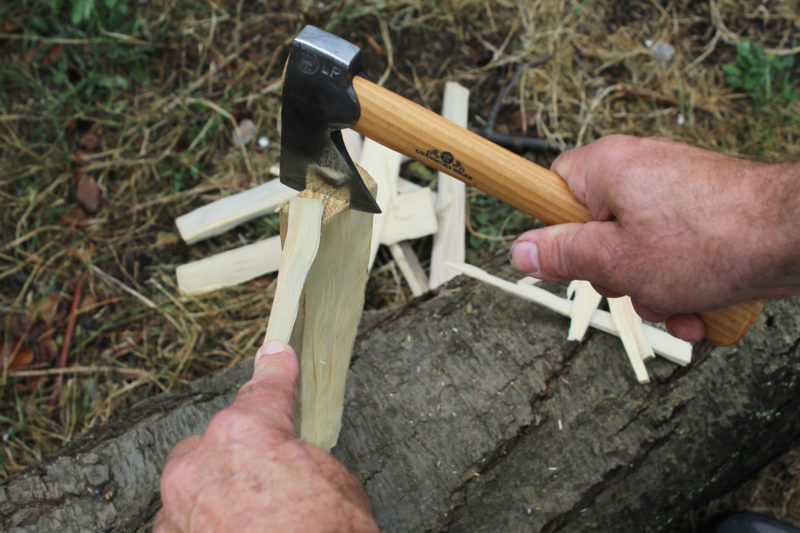 all photographs by the author
all photographs by the authorThe Small Hatchet is a great tool for splitting kindling. Using a stick to keep the workpiece upright keeps the fingers at a safe distance from the sharp blade.
Daniel Beard, in The American Boy’s Handy Book, wrote, “At least one or two good sharp hatchets should form a part of the equipment of every camp; it is astonishing, with their aid and very little practice, what a comfortable house may be built in a very short time.” It’s no longer acceptable, as it was in 1882, to chop down live trees to build the cottage, beds, tables, and chairs Beard describes in his chapter on camping in the woods, but a sharp hatchet is still a useful tool to have while camp-cruising.
During my Inside Passage cruises (Sea Trial Part I and Sea Trial Part II) I used a hatchet to split firewood and kindling, to make and drive tent stakes, to make floats to keep a mooring line from snagging on rocks during a midnight low tide, and even to fashion a slender rudder to hold a steady course while rowing.
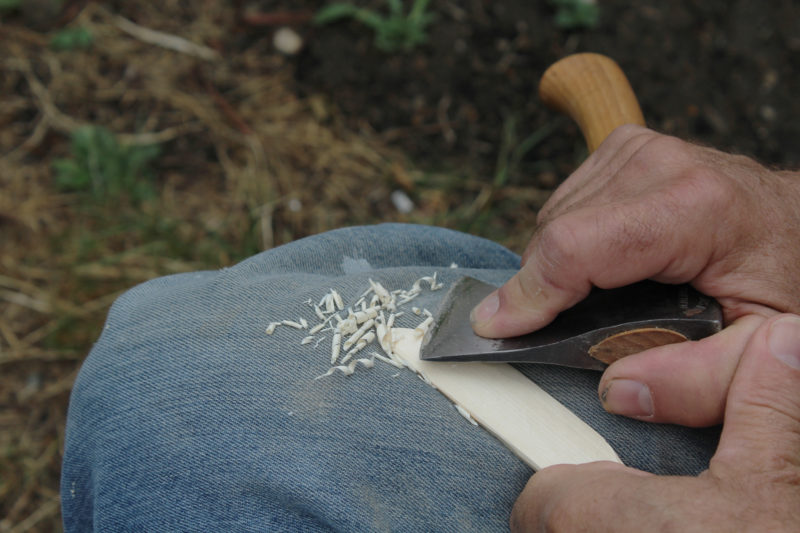
The hatchet’s slender blade can take a sharp edge, fine enough for whittling. Here a bit of maple, split from a fallen branch, is on its way to becoming a butter knife.
The finest hatchets I’ve owned are made in Sweden by Gränsfors Bruks, a small company founded in 1902. The steel they use is recycled and processed to create an alloy that is hard enough to take a good edge yet not so hard that the blade is brittle. The cutting edge that comes from the factory is almost razor sharp and stays sharp, even after chopping through well-dried hardwood. The handles are made of hickory—a tough, dense wood long used for tool handles because of its impact resistance and a degree of flexibility that absorbs some of the shock of chopping so the vibration isn’t all transmitted to your hands. The handles are soaked in linseed oil and then finished with beeswax. Each tool from Gränsfors has the initial of the maker stamped into the steel alongside the company seal—a crown over the initials GBA. Both of my hatchets have “LP” on the side of the poll indicating they were made by Lennart Pettersson.
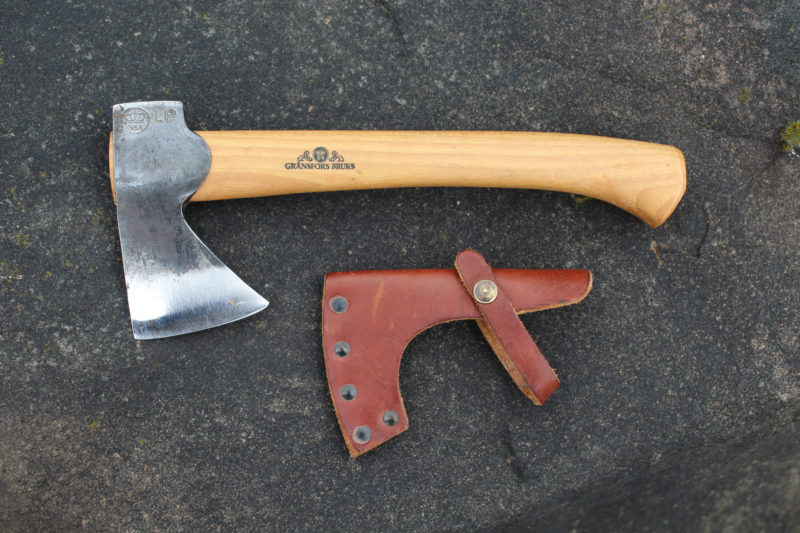
The Small Hatchet is small enough to be tucked into a pants pocket.
My Gränsfors Small hatchet has a 10″ handle and weighs just 12 1/2 oz. The blade, with its cover on, is 5″ long and fits in my back pocket. It takes an edge as sharp as the best of the chisels in my shop: the slightest nick of the blade will draw blood. The head of the axe fits nicely in my hand for carving. The poll and the blade came polished to a mirror finish. Pettersson, an avid fisherman, designed the hatchet and gave the poll smooth, rounded edges to make it suitable for use as a fish club. The blade is thin enough that Gränsfors even suggests it can be used to fillet fish. The handle is sanded smooth and slender enough for me to grip for carving. The leather is vegetable tanned, in keeping with the company’s goals to minimize environmental impact.
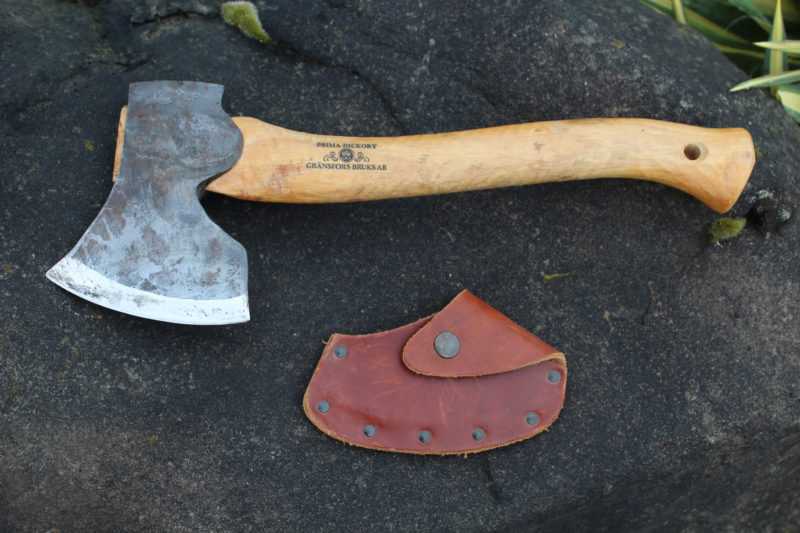
For heavier work, the Gränsfor’s Large Carving Axe has a textured handle for a better grip and a larger, heavier head.
My Gränsfors Large Carving Axe has a 14″ handle and 4 1/2″-long blade. It weighs 2 lbs 3 oz. The handle is textured, bearing the slight scalloped tooling marks of what I presume is a router lathe, providing a non-slip grip. The lower curve of the handle fits nicely into my hand, and the flared end knob keeps it from slipping through my fingers. I’ve owned this axe for at least a decade, and its head (like that of the Small Hatchet) is still solidly attached to the handle. Gränsfors dries the hickory properly so that it swells up under normal humidity and locks in the axe eye.
These tools will surely outlast me. I’ve stamped my initials on the head just around the corner from those of Lennart Pettersson. There’s room for more initials from the generations to come.![]()
Christopher Cunningham is the editor of Small Boats Monthly.
Gränsfors Bruks distributes its products through retailers around the world. The Small Hatchet retails in the U.S. for $130. The Large Carving Axe is available in the U.S. for $185. The Gränsfors tools are handmade, not mass-produced, so filling an order may take months.
Is there a product that might be useful for boatbuilding, cruising or shore-side camping that you’d like us to review? Please email your suggestions.
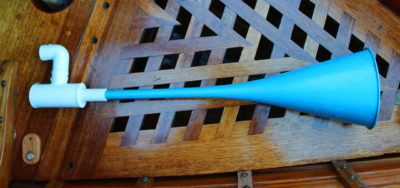
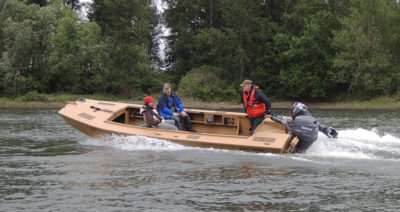
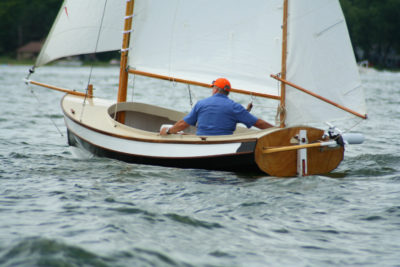
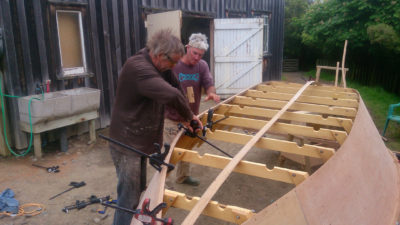
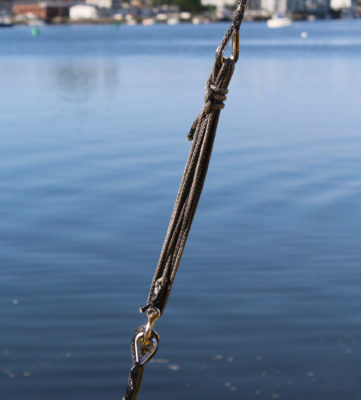
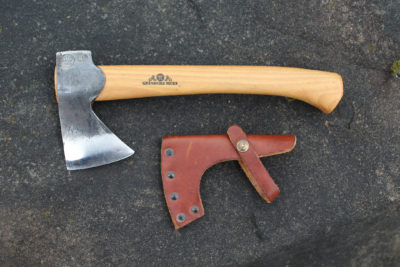
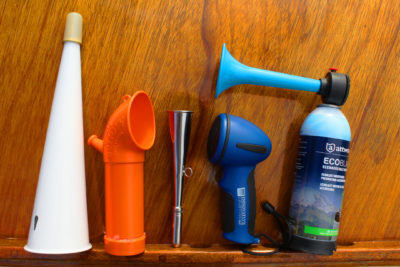
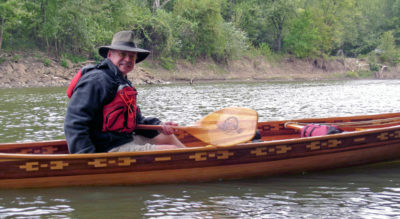
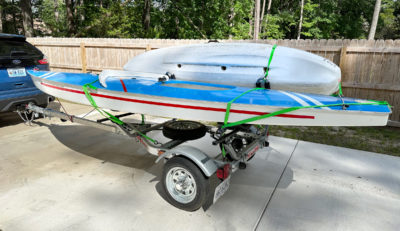

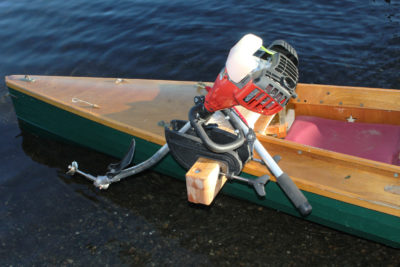
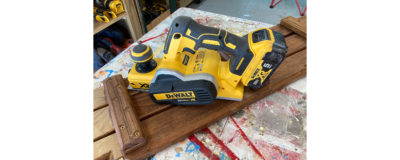
For those who would really like an axe like the Gransfors but can’t fit it into their budget, I recommend frequent trips to local antique shops. Find the ones that have tools and eventually you can find most any axe or hatchet for a fraction of the price. I recently purchased a tool quite like the large carving hatchet for a fraction of the price, it needed a handle which took more than one try but is well within the capabilities of anyone who can build a boat. I think I probably enjoy using it as much as I would the Gransfors since it has a little of my own craftsmanship in it as well as the original blacksmith’s.